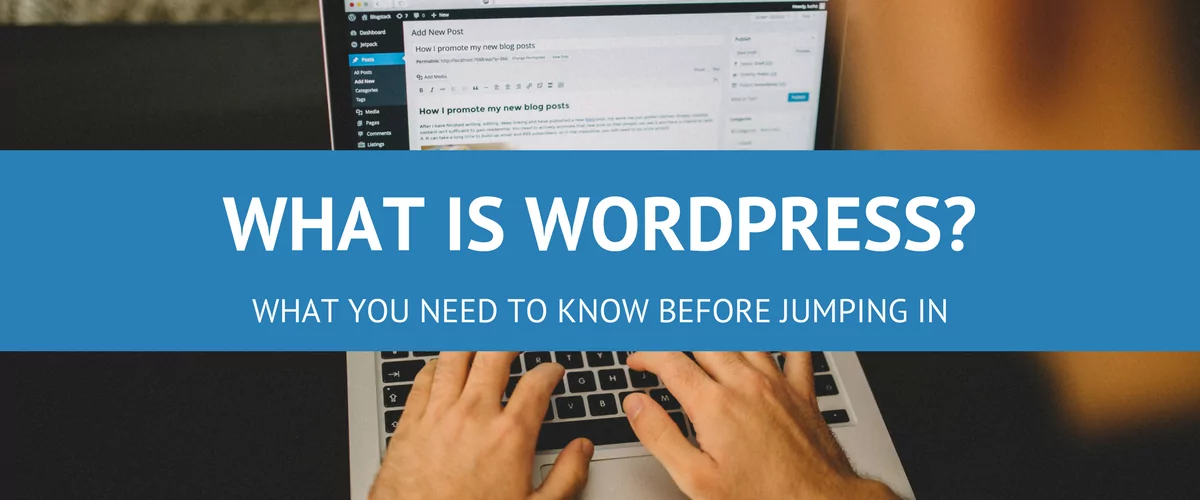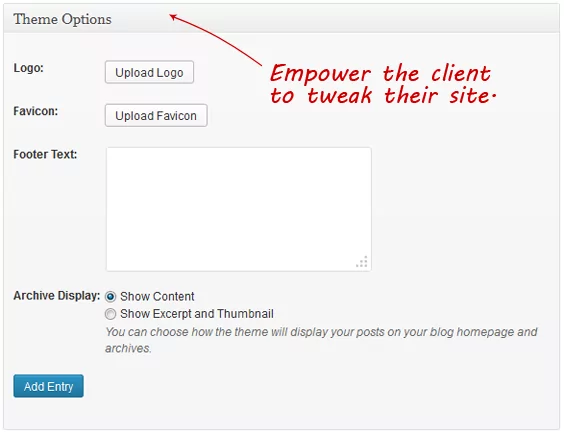Table of Contents
To developers, the WordPress admin interface is really simple and intuitive, particularly considering the amount of trouble we go through to make things behave like they should.
I found out a lot of clients that were excited about having their own self-powered CMS, freaked out when trying to change a piece of content or simply weren’t using it at all. It still wasn’t easy or intuitive enough.
Three things that make it hard for non-technical clients to update their site
- using HTML with different classes in the content editor. Sooner or later they are just going to forget a closing tag, break the site and that means an email or phone-call when you were in the middle of a really cool project and didn’t want to be interrupted.
- using various plugins with settings with settings all over the place. They’re gona forget to change something and that’s coming back to you.
- shortcodes – I know what you’re thinking, they are actually useful, but not if they forget the shortcode name or what parameters to use. Also, shortcodes get intertwined with content in the editor and that’s like using HTML, only a little bit easier.
Now imagine having a single place where your client can edit exactly what he needs: a couple of testimonials, update their logo or favicon, changing the copyright footer text, managing the slideshow on the homepage or give them some textareas where to insert their ads.
Welcome Options Page Creator – a new feature coming soon in WCK
The Options Page Creator Allows you to create a new menu item called “Client Site Options” which can hold advanced custom field groups (just like any other edit page). You can register multiple options pages with multiple meta-boxes and repeater fields.
Perfect for:
- Theme Settings
- Mini plugins that need an UI
- Advertising zones
- Small content pieces that don’t deserve a Custom Post Type just for them (mini-testimonials, widget like zones, etc.)
A new WordPress Creation Kit is coming June 13*
Building a bullet proof, content adding interface for your clients will get a lot easier.
WordPress Creation Kit helps YOU to improve the usability of the sited you build, making them manageable by your clients. Your very own repeater custom fields and groups, custom post type and taxonomy creator with front-end posting.
- Custom Post Type Creator
- Custom Fields Creator
- Custom Taxonomy Creator
- Front-End Posting
- Options Page Creator
Hop on the list if you want first dibs and some more freebies from the launch day:
Related Articles

Beginner’s Guide to: What Is WordPress?
Ever now and again the question arises with new clients that aren't really tech savvy: "What Is WordPress?" What I'm hoping to achieve with this post is to drop the technical jargon for a minute and explain in down to earth words what is WordPress, how can it help you, what is WordPress.com, what's a […]
Continue Reading
Best WordPress Monetization Plugins & Tactics to Grow Your Revenue
You will agree that finding the best WordPress monetization plugins (and tactics) to grow your revenue is challenging. If that describes your situation, you're in the right place, and we have your back as always. Like you, I had big dreams when I started my first WordPress site. Also, like you, I was skeptical about […]
Continue Reading
A Guide to WordPress Forum Plugins: The Best Plugins & How To Manage Them
If your WordPress site is designed to serve and engage with a community, you’ll need to install a WordPress forum plugin. Forum plugins add a platform where users can ask questions, provide answers, and join in discussions. It promotes engagement and gives users a sense of being part of a community. You can use it […]
Continue Reading

The issue with some clients is having the budget to correctly test the config, theme and plugins etc locally before rolling it out on live environments with many.
Hey Mathew,
Getting the budget and making clients understand why that’s important and why you need to charge for it is definitely a big pain almost every developer has.
I know some local developers that besides including testing in the quote were also including a “risk” percentage for each task:
– development 1000$ with a possibility of going over with a maximum of 20%.
– testing and migration 200$ with a possibility of going over with a maximum of 40%.
I’m not saying this is something everybody should do, but they were really happy on how that worked and their clients didn’t have a problem with it.